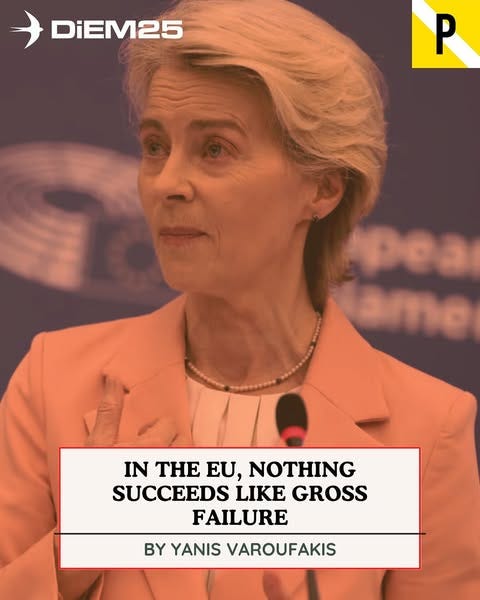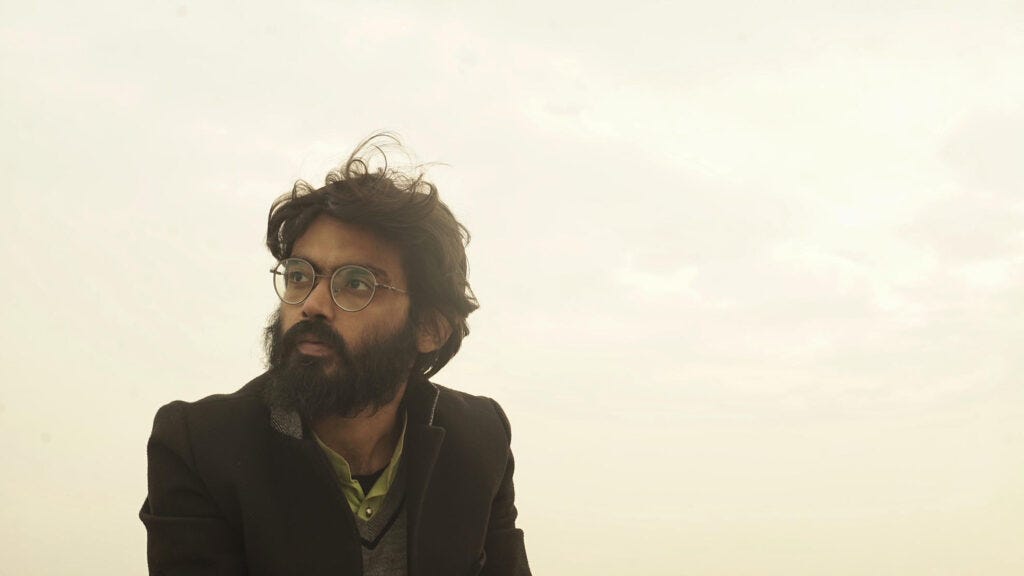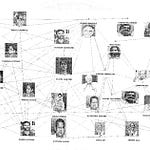Every story in this edition of Highlights emerges from a simple but urgent truth: where there is power, there is resistance.
From the slow violence of starvation in Gaza to the silent erasure of political prisoners in India, from the disappearances in Rwanda to the digital traces of the dispossessed in Delhi — each of these stories is a testament to people who refuse to be erased, and communities that insist on existing with dignity.
In Gaza, starvation is used as a weapon of war. We bring you a conversation with Professor Heidi Mathews and Priya Gupta on how humanitarian aid is criminalized and international law reduced to theatre. The targeting of the Freedom Flotilla is not an exception — it is part of the siege.
In India, political prisoner Sharjeel Imam writes from prison about faith, federalism, and the betrayal of secular promises. His letter is not just a reflection — it is an act of refusal. So too is the Telugu translation of How Long Can the Moon Be Caged?, which brings the voices of incarcerated dissenters to new audiences.
We mark six years since the Bhima Koregaon arrests with art and memory from the BK-16, while in Rwanda, Victoire Ingabire’s disappearance reminds us how authoritarianism globalizes its methods.
And in Delhi’s slums, resistance takes the form of e-commerce receipts — digital proof of life in a city that denies their existence.
At The Polis Project, we document resistance because it is memory, because it is evidence, because it is hope. And because it is what survives when institutions collapse.
This is what we carry. This is what we amplify.
And you can be a part of what we are building by supporting independent journalism.
In solidarity,
Meenakshi Thirukode
Head of Communications and Cultural Partnerships
Highlights
Dispatches | Breaking the Siege: Starvation, War Crimes, and the Freedom Flotilla
Suchitra Vijayan was joined by Professor Heidi Mathews and Priya Gupta to discuss law, violence, and the weaponisation of hunger in Gaza. They explored the use of starvation as a weapon of war in the context of the ongoing genocide in Gaza, examining states’ legal obligations under international humanitarian law and the systematic obstruction of humanitarian aid to Palestinians. The conversation also addressed the Freedom Flotilla — what happened to it, the legal implications of its interception, and how the targeting of aid efforts reflects not only individual violations but a broader collapse of the international legal order itself.
Telugu Translation of How Long Can the Moon Be Caged? Voices of Indian Political Prisoners
Silencing and punishing critical voices is a project that lies at the heart of Modi’s authoritarian regime in India. In this unique book, now available in Telugu (Chandamamanu Enta Kalam Bandi Cheyyagalaru), Suchitra Vijayan and Francesca Recchia look at present-day India through the lived experiences of political prisoners. With research from The Polis Project, including our Profiles of Dissent series, it combines political and legal analysis with firsthand testimonies. The authors explore the small gestures that constitute resistance inside and outside jail for the prisoners and their families, telling a story of the destruction of institutions and erosion of rights.
Yanis Varoufakis Writes, “In the EU, nothing succeeds like gross failure”
As part of our knowledge-sharing partnership with DiEM25, co-founder Yanis Varoufakis critiques Ursula von der Leyen’s tenure as President of the European Commission, arguing that her celebrated policies — the Green Deal and Re-Arm Europe — are not just failures but strategic deceptions, empty of funding and vision. Von der Leyen is the embodiment of a European political order that rewards spectacle over substance, and impunity over accountability.
Victoire Ingabire’s Disappearance and Global Systems of Repression
At Polis, we always ask you to pay attention to systems of global repression. As part of that, we are spotlighting the disappearance of Victoire Ingabire Umuhoza, Rwandan opposition leader who vanished ten days ago after a court appearance. Her home was raided, her communication cut, and her location remains unknown. Authoritarianism is often clothed in legal process, and Rwanda’s repression echoes patterns of silencing dissent, criminalising opposition, and erasing memory.
Revisiting the BK-16 Prison Diaries
2024 marked six years of the arbitrary arrests and imprisonment of political dissidents in the Bhima Koregaon case. In response, The Polis Project published a series of writings by the BK-16, and their families, friends and partners. By describing various aspects of the past six years, the series offers a glimpse into the BK-16’s lives inside prison, as well as the struggles of their loved ones outside. Each piece in the series is complemented by Arun Ferreira’s striking and evocative artwork.
Culture | Residents in Delhi’s Slums Are Turning to Online Shopping to Secure Housing Tenure
Our Culture vertical published Anuj Behal’s essay on how slum residents are turning to online shopping as a survival strategy. By saving e-commerce invoices, they create a digital paper trail to prove long-term residence and resist forced evictions in the absence of official land titles or state-issued documents. Amid increasing demolitions, these digital records are becoming an archive of presence in a city that denies their existence.
Politics |Sharjeel Imam: On Islamic modernism, Jinnah, democracy, and the systemic exclusion of Muslims in India.
In jail for over five years, and denied bail in violation of Supreme Court orders, the IIT graduate and JNU PhD scholar’s trial is yet to begin. Arguments on the charges continue but are nowhere near completion, his lawyer says. In this open letter, Imam revisits his early years, the Shaheen Bagh protests, and how Tawhid sustains him.
I am a pessimist because of my intelligence and an optimist because of my will.” Gramsci is supposed to have said that. The same applies to my case although I would prefer a modified version: I am a pessimist because of my intelligence and an optimist because of my faith.
“I have spent five years in jail now. I would reiterate that these have been the most productive years of my life, not only because I got to read a lot—hundreds of books—but also because I have met a lot of political prisoners, have lived with people from Assam for six months, and have been living with people from Delhi and Haryana for over four years. All this has been a learning experience.
I am a student of Islamic modernism and its scholars such as Jamaluddin Afghani and Muhammad Abduh of Egypt. Our own Akbar Allahabadi, Allama Iqbal and Maulana Azad, and Ali Shariati, the Iranian revolutionary, have shaped my understanding of politics as well as Islam. It is these people who inspired me to take up a study of Islam and history as an engineering graduate.”




















Share this post